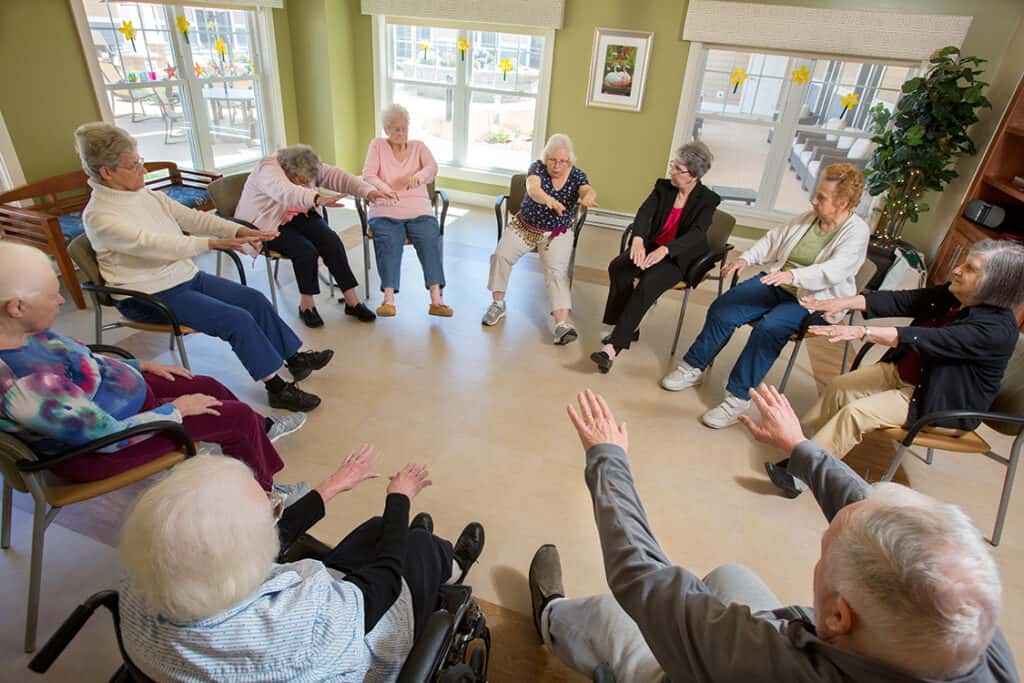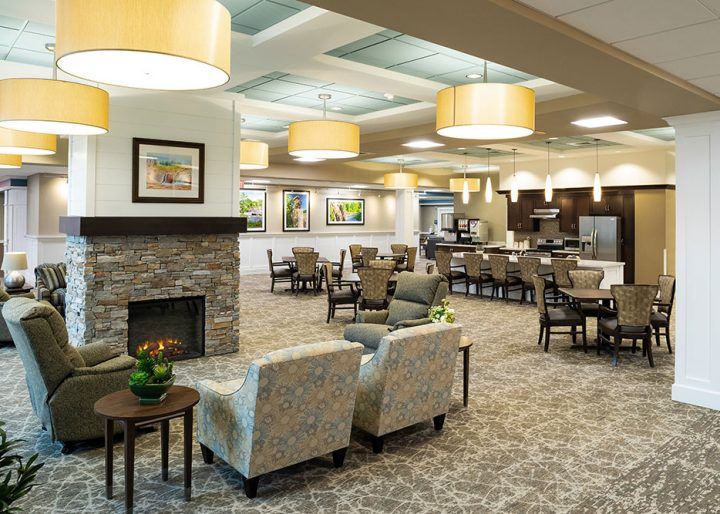Learn about innovative Memory Care programs for cognitive well-being.
Learn about innovative Memory Care programs for cognitive well-being.
Blog Article
How Helped Living Facilities Enhance Lifestyle for Those With Dementia
Assisted living centers play a pivotal function in enhancing the quality of life for people with mental deterioration by executing tailored care approaches that cater to their unique needs. These settings incorporate structured tasks with psychological assistance, cultivating a feeling of area while making sure safety and security and independence. The combination of appealing programs and family participation better improves the locals' experience. Yet, the complexities of dementia care remain to progress, prompting a closer assessment of how these centers adapt and innovate to satisfy the challenges encountered by locals and their family members. What implications does this have for future care versions?
Personalized Care Program
(Memory Care Facilities Charlotte)In a lot of cases, individuals with dementia call for tailored support that resolves their distinct demands and preferences. Individualized care strategies are important in assisted living settings, as they ensure that each resident obtains suitable focus and services. These plans are created collaboratively, involving health care specialists, caretakers, and member of the family to create an extensive overview of the individual's case history, cognitive capabilities, and individual interests.
A well-structured individualized care strategy normally includes certain goals associated to health and wellness management, day-to-day tasks, and social involvement. It makes up the individual's cognitive decrease while promoting freedom and dignity. Regular evaluations and updates to the care strategy are important, as they permit for alterations based upon the local's developing condition and choices.
Trick components of these plans often include medicine management, behavior assistance methods, and dietary guidelines customized to the individual's requirements (Memory Care). By concentrating on personalized care, helped living centers can cultivate an encouraging atmosphere that boosts the lifestyle for individuals with dementia, eventually adding to their overall health and joy. This personalized technique respects the individuality of each local, ensuring they receive the caring treatment they require

Engaging Tasks and Programs
Involving citizens in meaningful activities and programs is important for boosting the top quality of life for individuals with dementia. These tasks not only provide pleasure yet also stimulate cognitive feature and advertise social interaction, which can alleviate feelings of isolation often experienced by homeowners.

Additionally, customized programs are important in ensuring that each local's special choices and abilities are acknowledged. This tailored approach motivates engagement, improves self-worth, and offers a sense of achievement.
Moreover, routine assessments of locals' passions can help team modify and adjust activities to much better suit evolving needs. By focusing on engaging activities and programs, assisted living facilities can significantly enhance the overall experience and emotional wellness of individuals dealing with mental deterioration.
Safe and Encouraging Setting
Producing a secure and supportive environment is crucial for individuals with dementia, as it directly affects their health and quality of life. Helped living centers are made with particular functions that advertise security while fostering a complacency and comfort. These atmospheres prioritize access, with layouts that minimize confusion and motivate self-reliance, enabling citizens to browse their surroundings much more quickly.
Precaution, such as secure entries and exits, prevent straying and unapproved accessibility, which are crucial factors to consider for people with dementia (Memory Care). Team member are educated to recognize the special requirements of citizens, providing tailored assistance and supervision to ensure their security. In addition, the incorporation of relaxing colors and familiar things can help in reducing stress and anxiety and disorientation, producing a more comforting atmosphere.
Along with physical security, emotional support is critical. Facilities usually use staff that are not just experienced in caregiving view publisher site but likewise educated in empathy and communication, promoting count on and rapport with locals. This all natural strategy adds to a caring environment where people really feel valued and comprehended, inevitably enhancing their overall lifestyle.
Social Communication and Community
A supportive environment not just prioritizes security but likewise fosters opportunities for social interaction and neighborhood interaction, which are essential for individuals with mental deterioration. In assisted living facilities, structured activities and common areas urge citizens to attach with each other, decreasing feelings of seclusion typically experienced by those with cognitive impairments.
Social interaction plays a considerable duty in boosting psychological health and cognitive feature (Memory Care). Engaging with peers in team activities such as games, arts and crafts, or workout not just stimulates cognitive capabilities however likewise supports a feeling of belonging. Facilities usually arrange occasions that advertise socialization, enabling citizens to construct relationships and share experiences, which can be specifically advantageous for those with dementia
In addition, a vibrant area environment can boost the overall top quality of life for citizens. Personnel are educated to help with communications and support citizens in developing significant links. By developing a society of involvement, assisted living centers aid people with dementia maintain social skills and boost their mood, ultimately adding to an extra satisfying life experience. This community-oriented method is essential in handling the difficulties connected with dementia, advertising a feeling of function and connection for residents.
Household Involvement and Support
Family members involvement is vital in sustaining people with dementia in assisted living settings. Actively engaging member of the family not only supplies psychological convenience to homeowners but likewise promotes a sense of belonging and continuity in their lives. When families join treatment preparation and everyday activities, they contribute valuable insights concerning the person's preferences, background, and requires, which can enhance personalized care.
Moreover, normal family gos to can substantially enhance the psychological wellness of homeowners, reducing sensations of isolation and anxiousness. Relative can likewise aid in preserving cognitive function by involving their enjoyed ones in acquainted conversations and activities. This interaction reinforces personal identity and aids residents feel valued and understood.

Final Thought
To conclude, assisted living facilities significantly boost the quality of life for people with dementia with personalized treatment plans, engaging activities, and a risk-free setting. These components foster cognitive stimulation, psychological health, and a sense of self-reliance. Normal social interactions and solid family involvement add to meaningful connections and emotional support. Collectively, these variables develop a holistic strategy to care that addresses the unique requirements of people with dementia, promoting total well-being and dignity.
Report this page